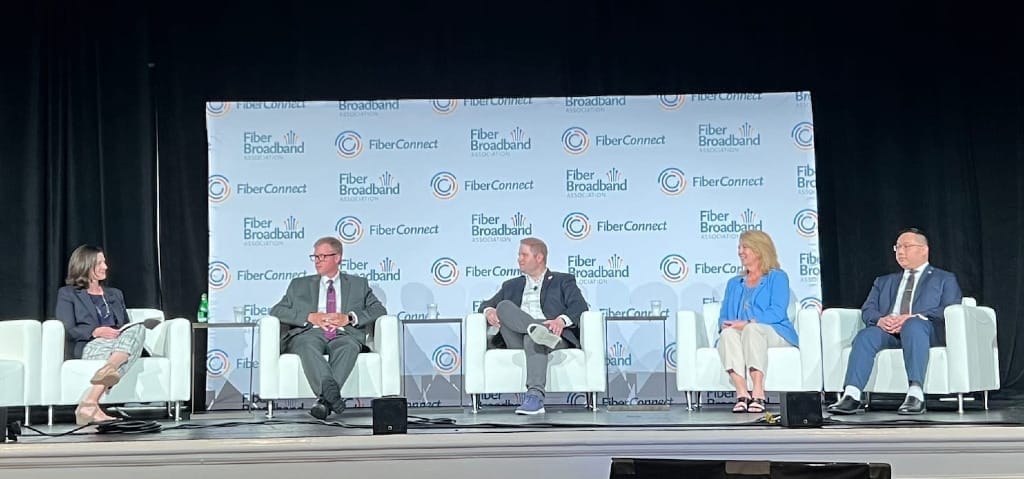To the BEAD-Cautious, State Broadband Heads Say They’re Here to Help
"We're on your side."

"We're on your side."

NASHVILLE, July 31, 2024 – The Biden administration’s $42.5 billion effort to end the digital divide is the largest one-time broadband investment in the country’s history, but it also has more hoops to jump through than previous broadband subsidies.
State broadband heads, the ones ultimately awarding grants under the Broadband Equity, Access, and Deployment program, tried to assuage some provider concerns at the Fiber Connect trade show here this week.
“The broadband office in every state, I don’t think I’m speaking out of turn here, is going to really walk hand-in-hand with you to make sure you’re successful with that buildout,” Sally Doty, director of Mississippi’s broadband office, said yesterday.
The National Telecommunications and Information Administration, the agency tasked with handling BEAD, has partially waived some rules that providers said were unworkable.
As a result, NTIA gave states the option to use less restrictive financing rules and limited some domestic manufacturing requirements – but small and mid-size ISP trade groups have continued to ask that provisions like a low-cost service option for low-income customers be reworked.
“We're on your side,” said Eric Frederick, the head of Michigan’s broadband office. “When it comes to the regulatory flexibility that NTIA has given us – in a strictly limited capacity – we want to take all the flexibility we can, because we don’t want the program to be more onerous than it has to be.”
He said his office was hiring a “permitting specialist” to start coordinating with other state agencies and local governments to smooth out processes for things like rights of way and environmental and historical reviews before projects get underway.
“This isn’t just ‘Here’s your money and go,’” he said. “It’s ‘What do you need to be more successful, and how can we ensure that happens?’”
Some larger providers like Charter and AT&T have also indicated on earnings calls and other public statements, including in some Fiber Connect discussions, that they might hold off on BEAD in states where they don’t find program rules to be favorable.
Carol Mattey, a broadband consultant and former FCC deputy bureau chief who worked on that agency’s subsidy programs, said yesterday that she’s not anticipating them to follow through on a lack of bids.
“For some of the larger, publicly traded companies that are saying the regulations are too onerous, I’ve seen this phenomenon before, where they said they weren’t going to do it and they ended up participating,” she said. “I do think this is part of a concerted public policy effort to try to get NTIA to back off on some of these regulations.”
Joanne Hovis, president of telecom consulting firm CTC Technology & Energy, said some hesitant providers will ultimately participate as a protective strategy.
“The risk of not participating is that somebody else is going to get money to come into either your incumbent service territory or an adjacent area that you would like to be able to build,” she said.
She noted that under the statute setting up BEAD, states “are going to have to fund every eligible location. So if you don’t bid, they’re going to have to try to find someone who will take those locations.”

The ambitious undertaking is supported by a $20 million grant awarded under the 2021 Tribal Broadband Connectivity Program.

Satellite companies want easier access, while carriers say that could upend licenses they purchased.

The agency tapped Tricia J. Paoletta and Matthew Plaster as senior advisors

The fire chiefs voiced strong support in May 2025 for NextNav’s new technology, before shifting gears just last month.
Member discussion